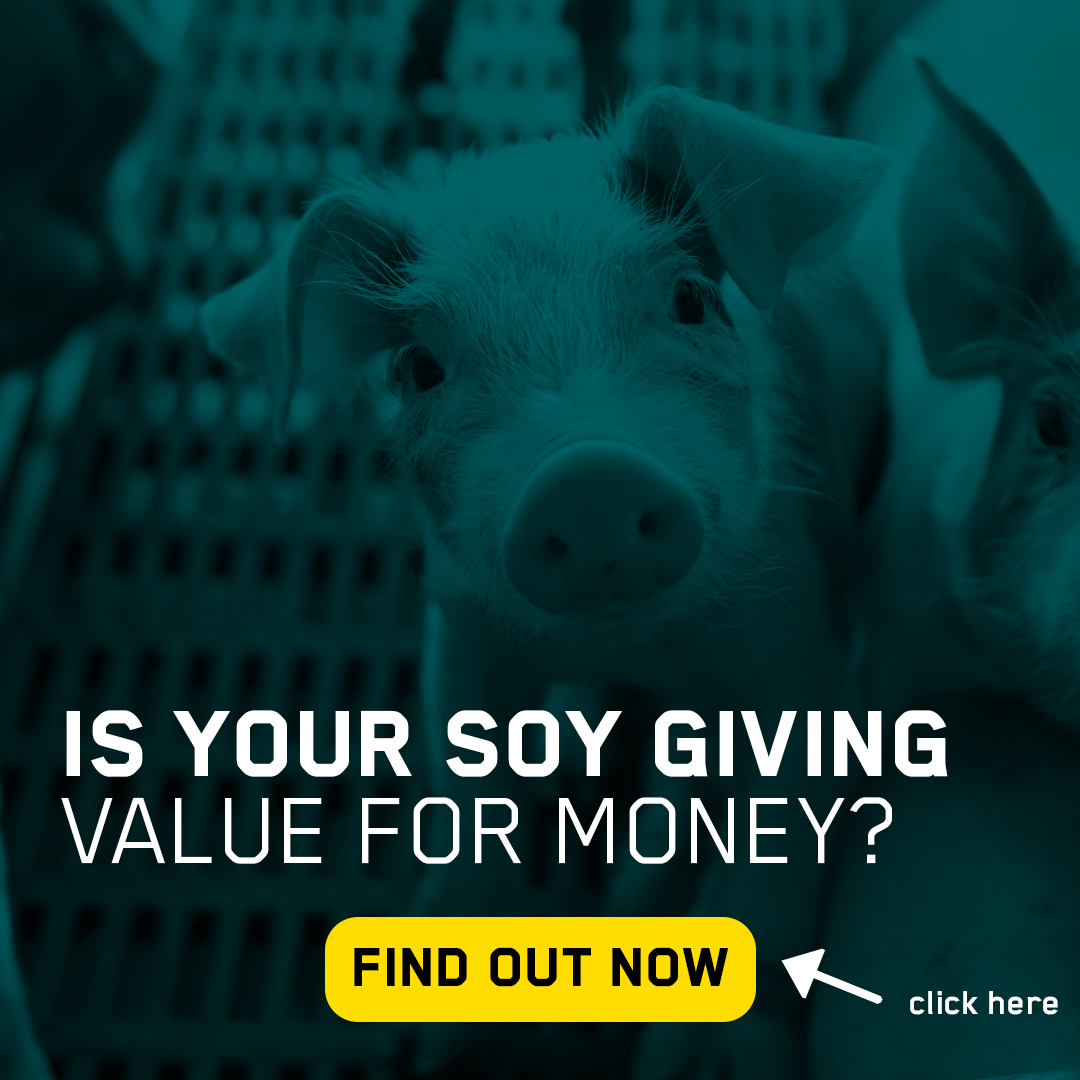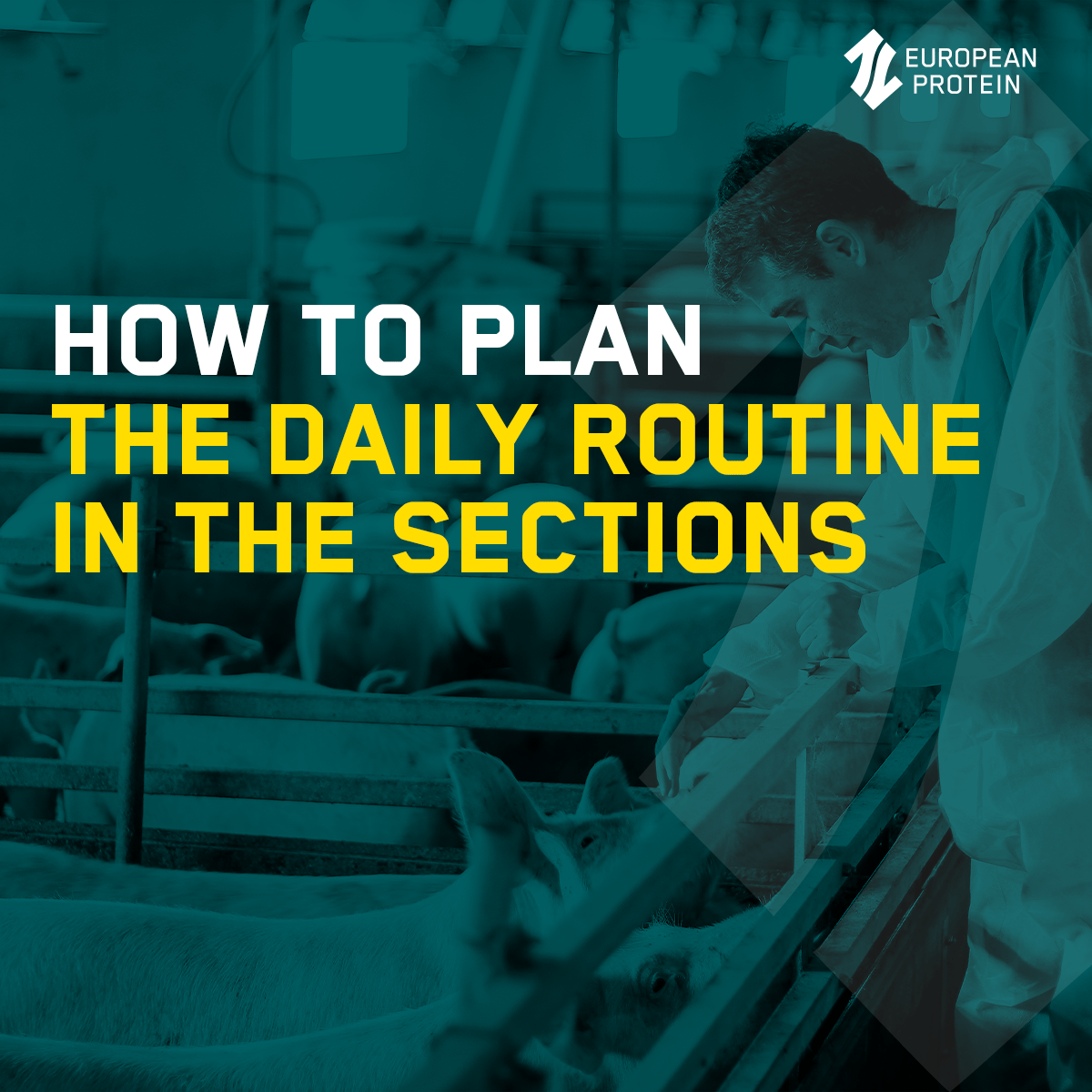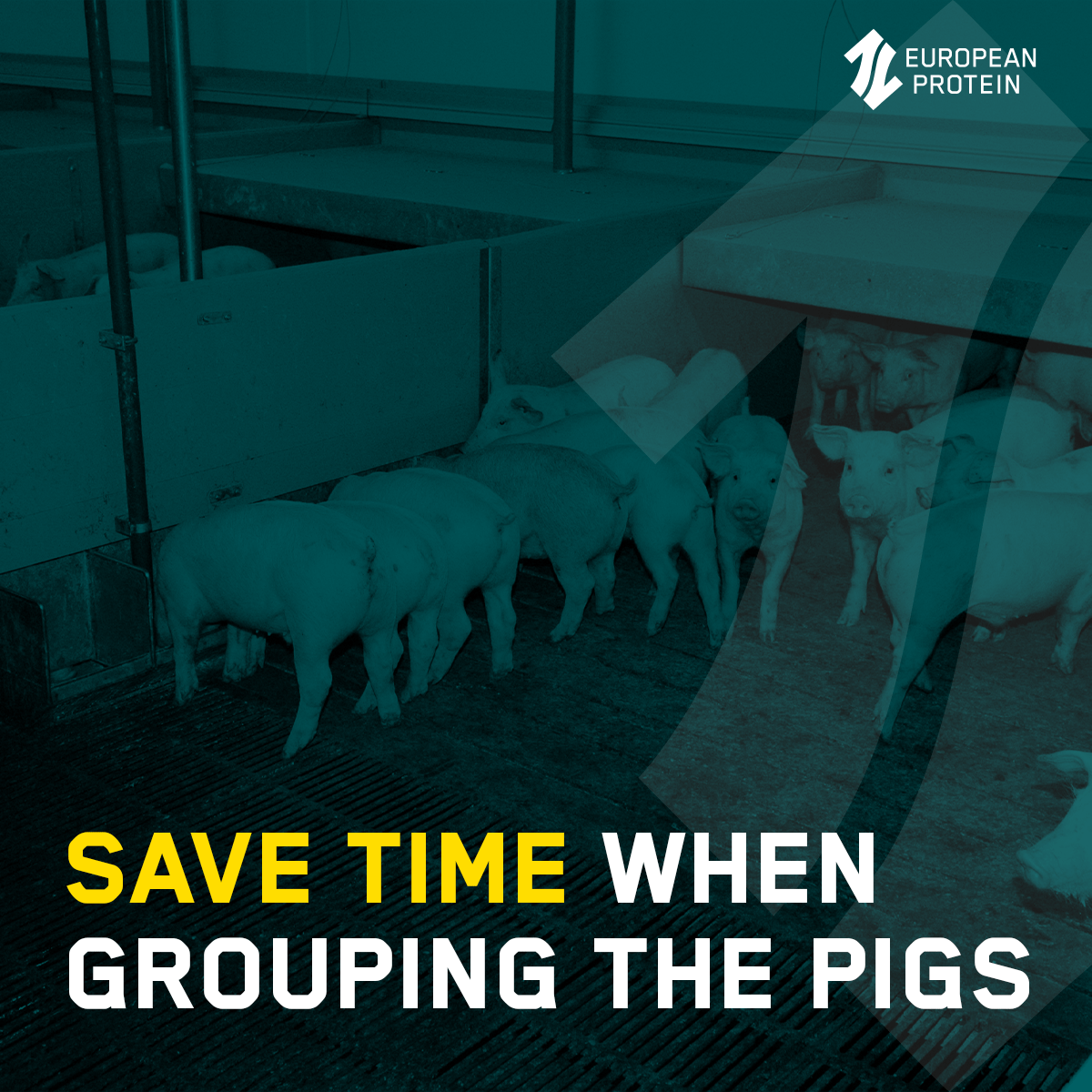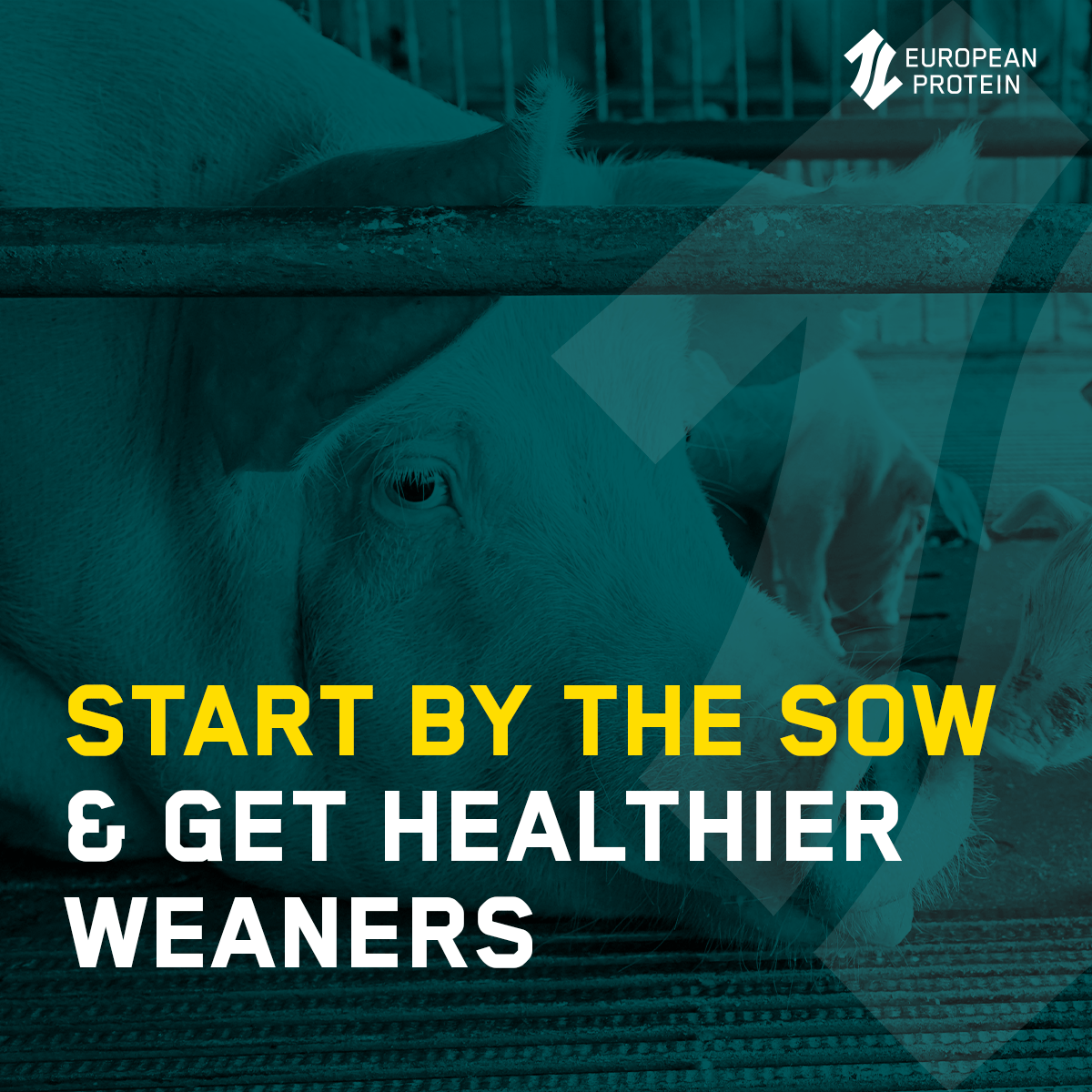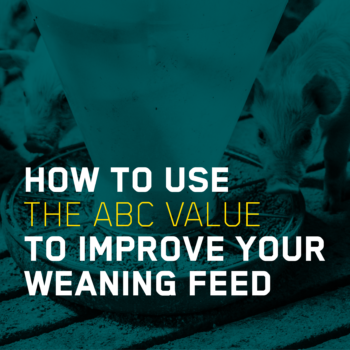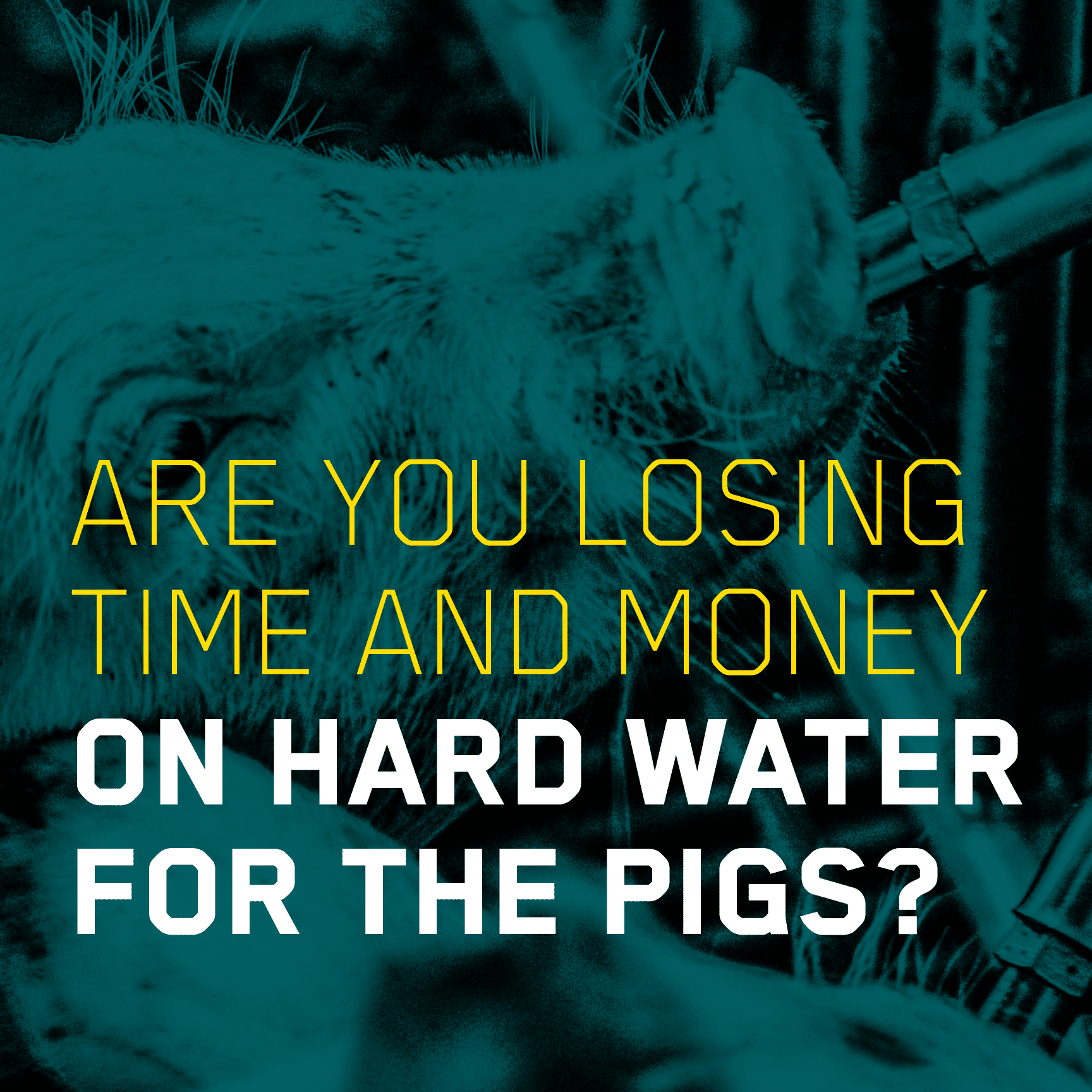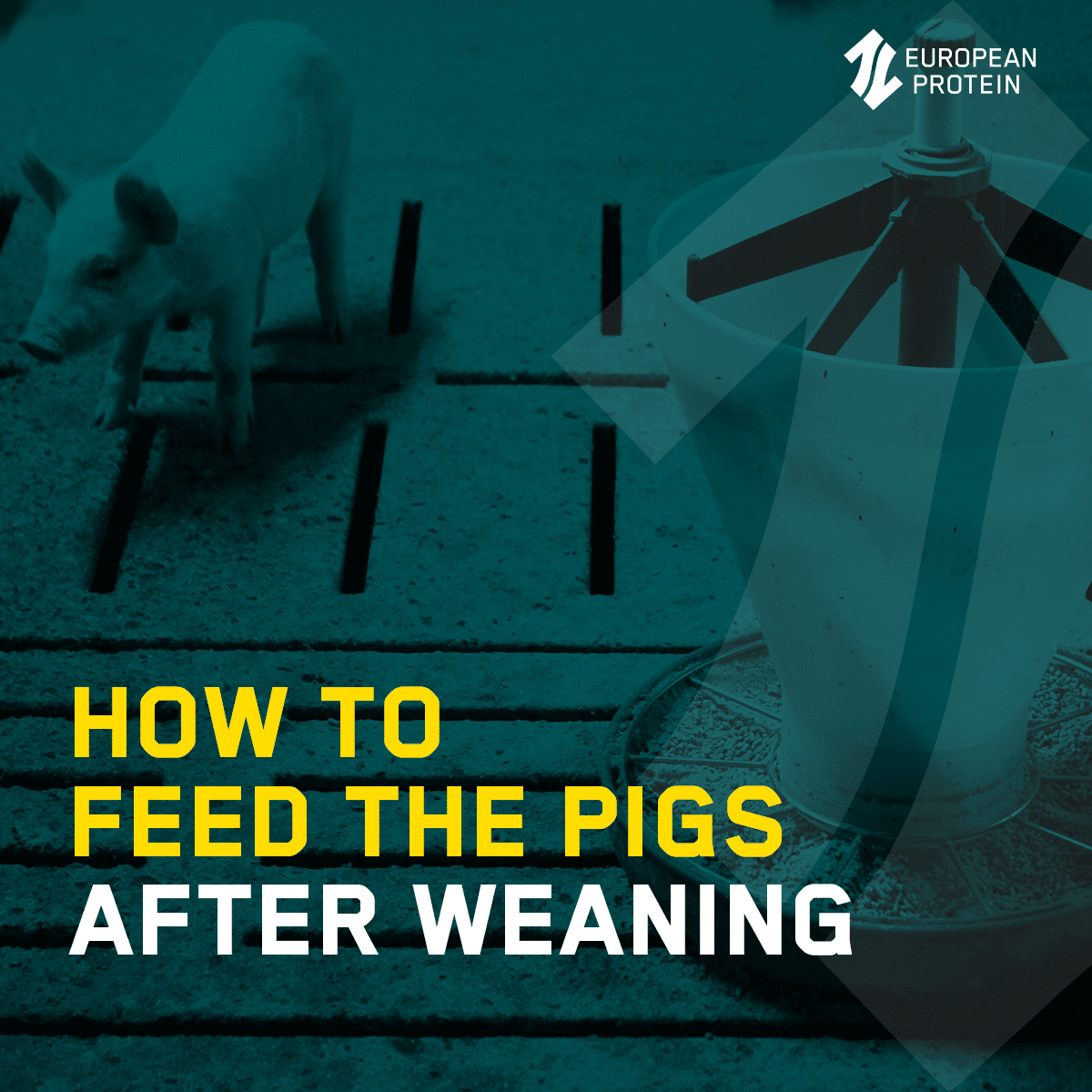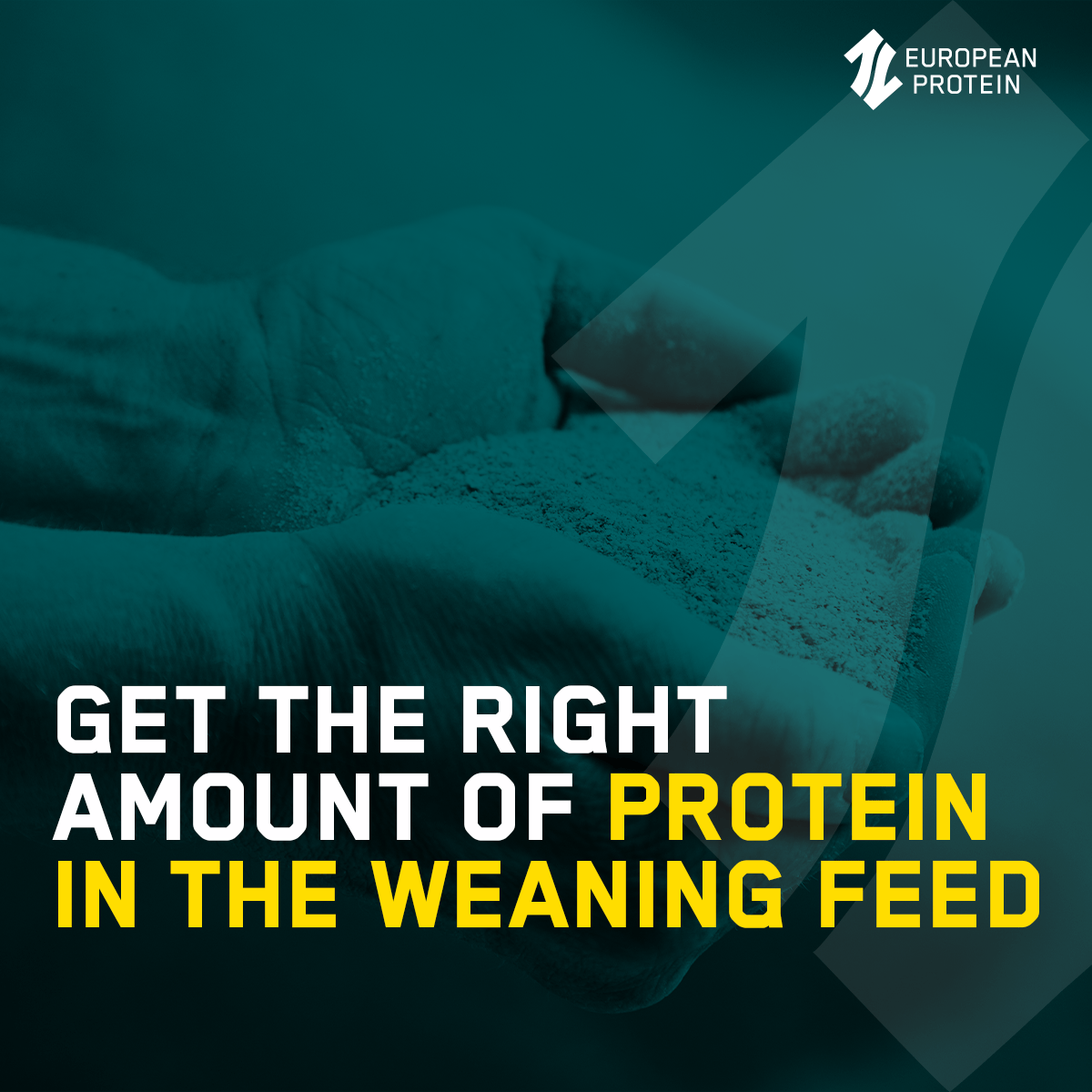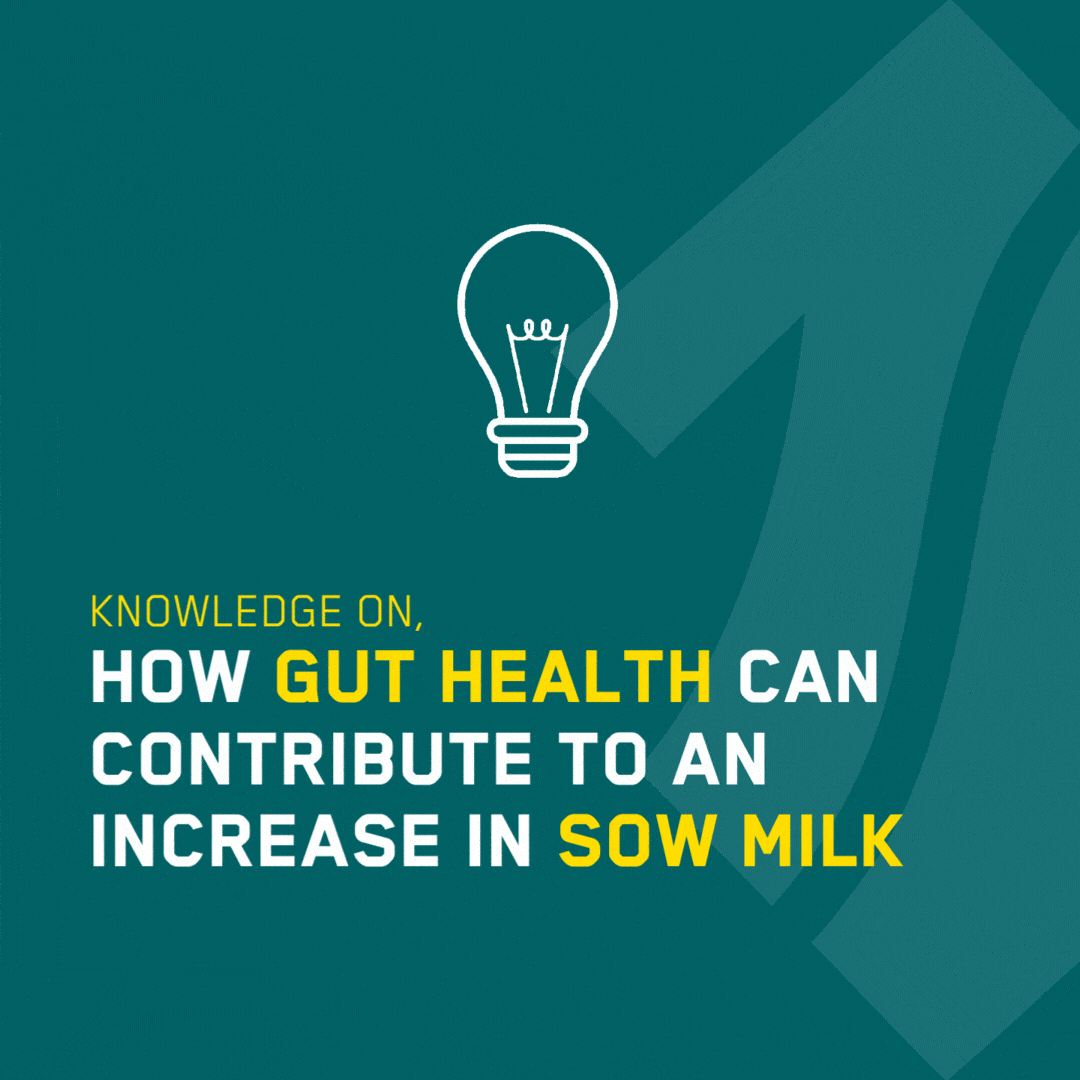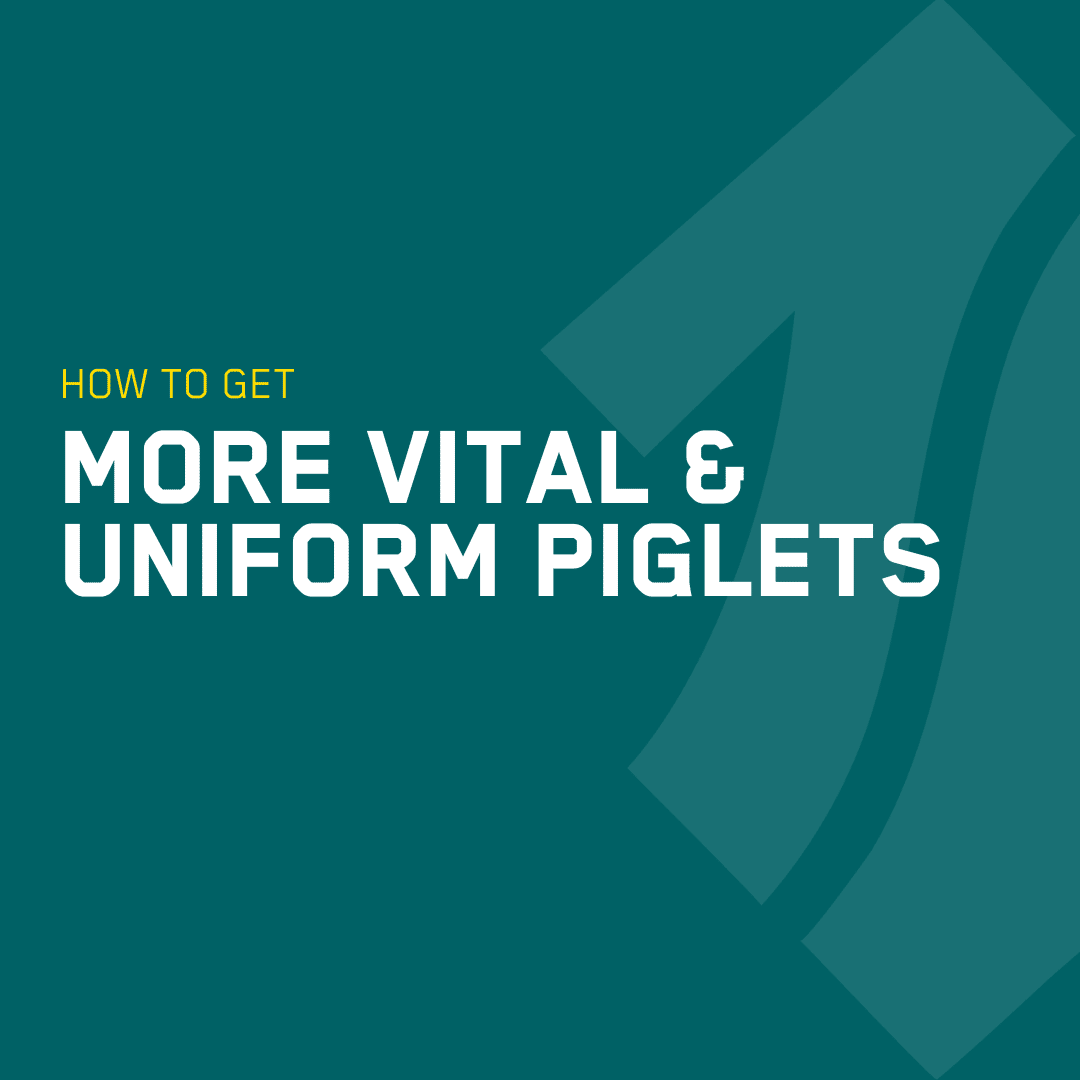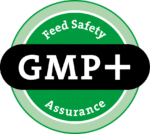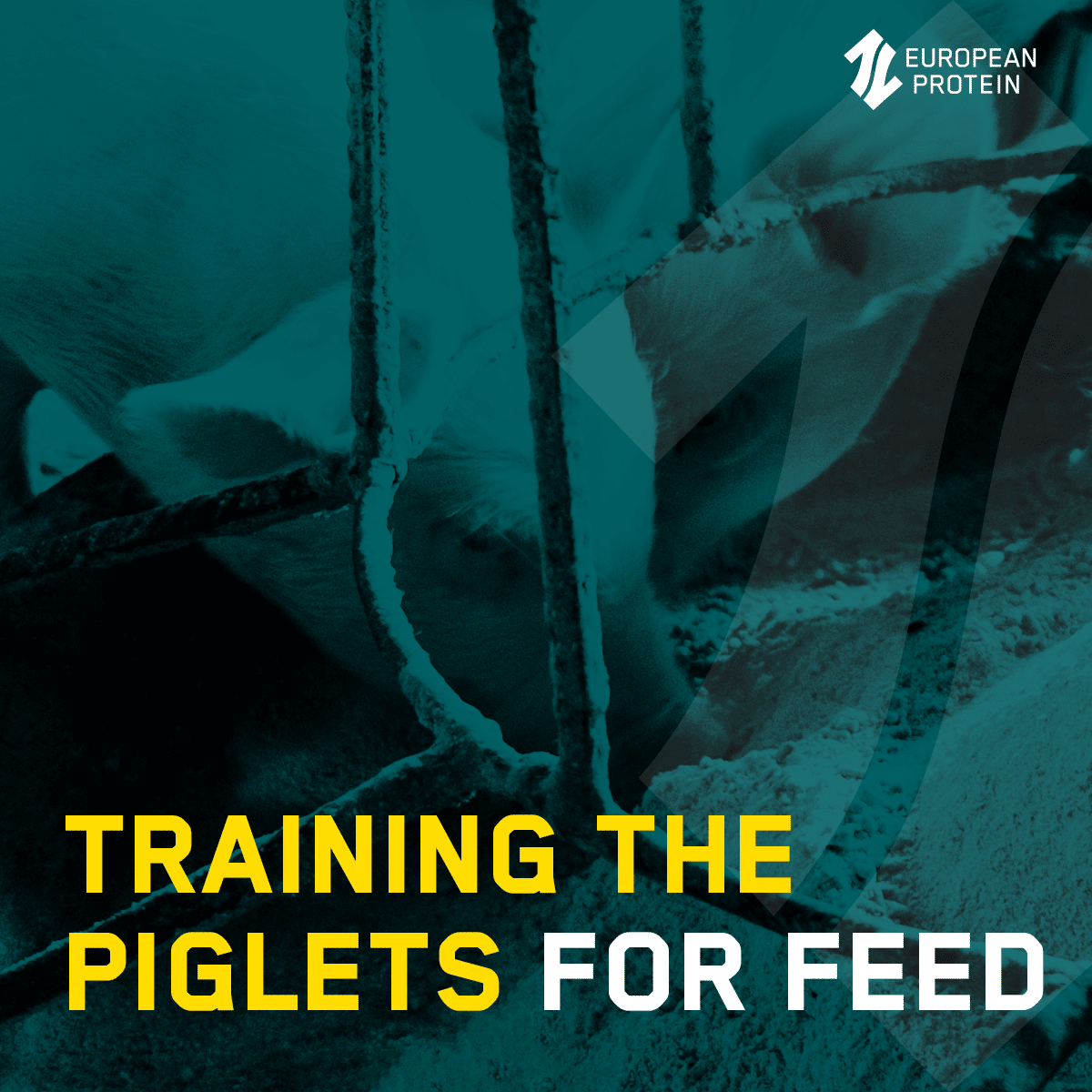
Achieving more uniform and vital sucklings
Small and passive sucklings count for the majority of piglets that do not make it past weaning.
Focus on management can increase the survival rate, but did you know that functional proteins can help the sucklings to a better start?
Feeding EP199 to the sow herd helps to improve the uniformity and vitality of the suckling piglets. In this way, both sow and workers have an easier time raising piglets and increasing piglet survival.
Read more about how EP199 help you to improve your results in the farrowing section below.
The placenta determines the quality of the piglet
The larger the placenta, the better supply of nutrients, minerals, antibodies and oxygen to the fetuses. The placenta also handles the transportation of waste products from the fetuses. The placenta is an essential key to unlocking the potential for more uniform and vital piglets.
The placenta starts developing as early as ten days after successful insemination, emphasizing that a good start for the gestation period depends on an early effort to maximize feed quality.
The placenta’s development demands a sufficient supply of fatty acids, amino acids, minerals, and antioxidants. All of which need to be available for the sow to utilize and metabolize the compounds. Likewise, the fetus will need a sufficient supply of nutrients.
The functional protein EP199 is a complex protein containing a combination of the demanded nutrient but highly digestible by the sow. When feeding EP199, improved utilization is documented by increasing mineral content for both sow and piglet. An example is the proteins ability to increase the iron content in piglet blood by up to 27%.
Source: Czech et al., 2019. See the paper here
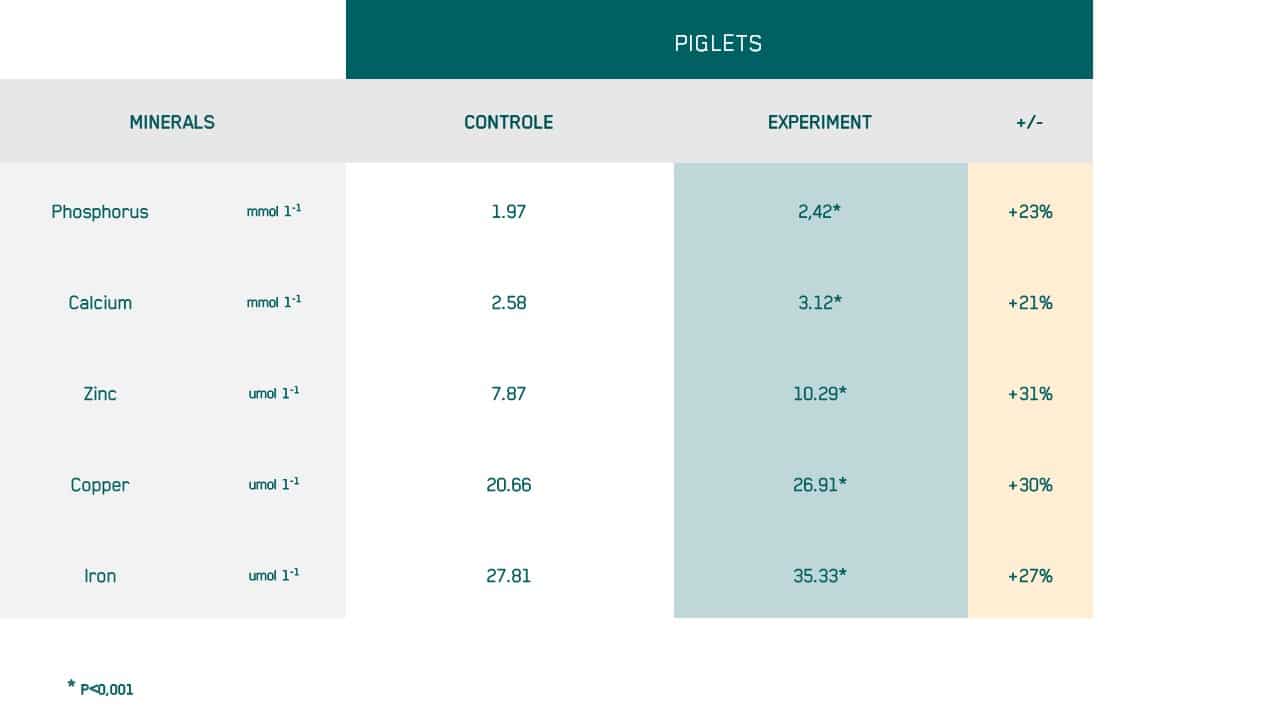
Maximise the supply of oxygen to the fetuses
The supply of oxygen to the fetuses needs to be at its’ best – especially during farrowing to ensure that the piglets remain viable. The red blood cells (RBCs) are responsible for supplying oxygen to the fetuses.
EP199 increases the number of red blood cells before farrowing.
Source: Czech et al., 2019. Read the publication here
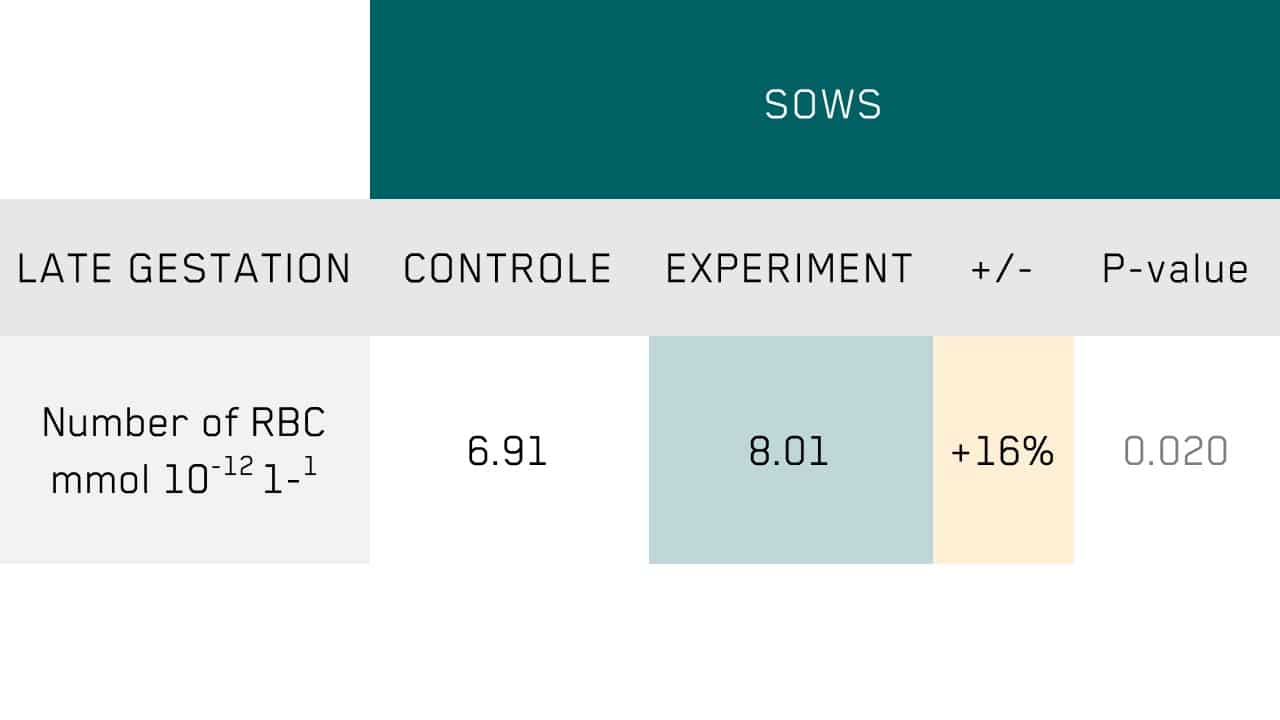
Inflammation reduces sow productivity
Inflammation – in particular – effects sow productivity negatively, and this is the reason why you have a great interest in reducing the occurrence of inflammation in your sow herd as much as possible.
Either physical or physiological stress can provoke inflammation. Consequently, all unnecessary and manageable stress factors should be minimised, especially before farrowing.
The more physical conditions involve inflammation in the womb, which can lead to a decrease in litter size. Inflammation can also result in lack of milk yield called PDS or Post dysgalactia syndrome (SEGES no. 1196).
Inflammation can be caused by bacterial infections through physical injuries like the utter but can also be the result of pathogenic bacteria in the gut microflora (SEGES, no. 1196). Besides inflammation, the pathogens also create toxins, which can affect the vitality of the fetuses.
Your feed can help the sows to a balanced and diverse composition of the gut microflora. That is why you need to be aware to use functional proteins, that counteract both inflammations and at the same time makes sure to keep the number of pathogens at a minimum.
With EP199 inflammation is reduced and the gut microbiome is modulated to promote beneficial bacteria and repress pathogens like E. coli, Salmonella, Clostridium Perfringens and Fungi by up to 95%.
Source: Grela et al., 2019. Read the publication here
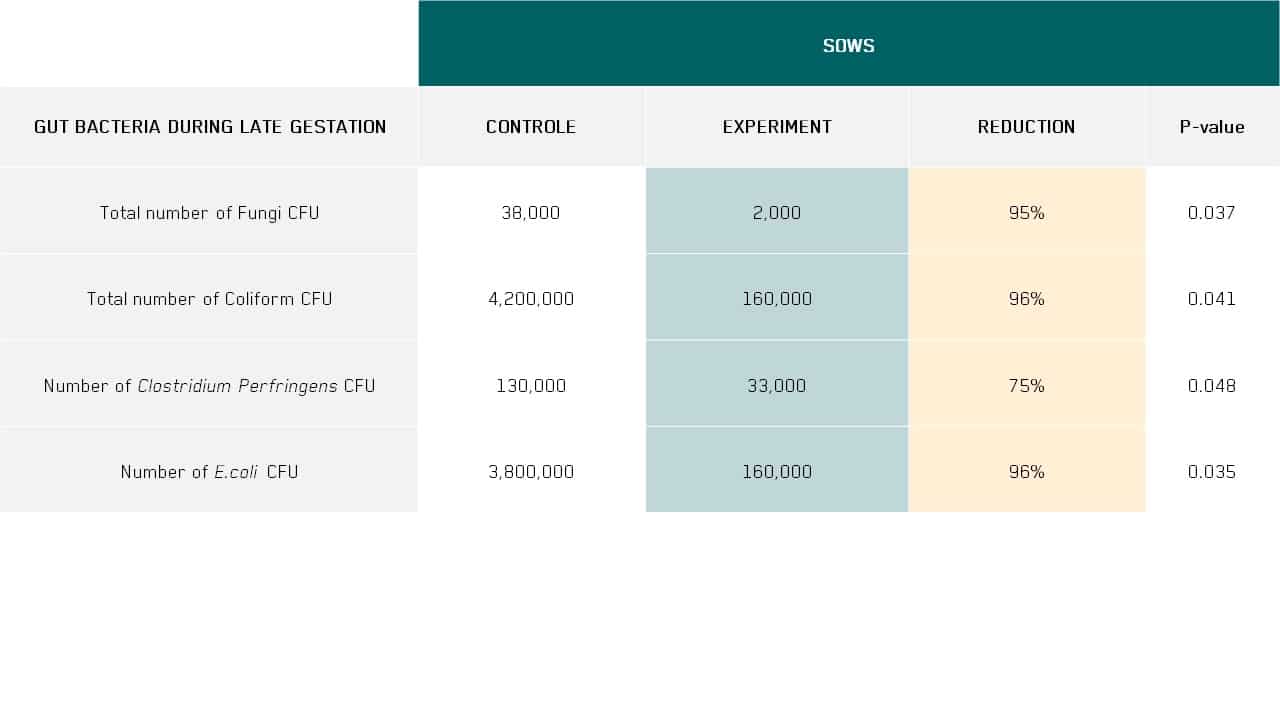
Why piglets become more uniform and vital with EP199
It is scientifically proven that feeding Lacto-fermented protein has the following advantages:
- Inflammation is reduced.
- Oxygen, mineral and antibody flow for the fetuses are increased.
- The number of pathogenic gut bacteria is reduced. The same goes for the number of toxins related to pathogens.
We would like to know more about how to increase the number of viable piglets. That is why we take blood, faecal, and milk samples from our customers’ sow herd.
WHAT DOES IT COST TO FEED EP199 TO THE SOWS?
The added cost depends on:
1) what EP199 replaces in your feed,
2) if you mix the feed yourself,
3) the feed consumption of your sow herd and,
4) the cost of your feed today.
We want to give you an exact price when we have had the chance to go through your optimisation. The typical cost is 23-27 EUR per sow per year.
HOW TO USE EP199
You start by adding 6% EP199 in the gestation section. After the sow has eaten EP199 through the entire gestation period, the inclusion is increased to 9% in the lactation period.
We offer to provide optimization through independent and recognized partners.
IT TAKES TIME TO ACHIEVE GREAT RESULTS
New customers can hardly wait for better production results, and six months may seem like a long time before you can expect better results.
Health takes time because a healthy gut takes time to build, especially if the sow has been reared without focusing on gut health. Younger sows are more quickly and easily affected by interventions than a herd consisting of older sows.
A sudden change in the lactation feed from 0 to 9% of EP199 is too drastic and can negatively affect. Always start in the gestation section and never in the farrowing section.
MORE TIPS
ABOUT EUROPEAN PROTEIN
European Protein is a Danish family-owned protein producer. We work to promote health and productivity for animals through functional and sustainable plant proteins. The company was founded in 2011 and has protein factories in Denmark, Ukraine and the US.
HEAD QUARTER
European Protein A/S
Vorbassevej 12, 6622 Bække, Denmark
+45 75 38 80 40, [email protected]
VAT No. 33643675
FACTORIES
Denmark
Mangehøje 4, 7300 Jelling, Denmark
+45 75 38 80 40, [email protected]
Ukraine
222-a Vokzalna Street, Rokytne 09600, Kyiv Region, Ukraine
+38 044 390 40 54, [email protected]
USA
1201 N Ellis Rd #7055, Sioux Falls, SD 57107, USA
+1 605-338-9775, [email protected]

